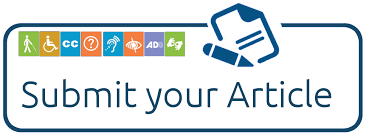THE ROLE OF HUMAN CAPITAL MANAGEMENT STRATEGY IN MOTIVATION IN THE DIGITAL ERA
DOI:
https://doi.org/10.55047/jekombital.v3i2.815Keywords:
Human Capital Management, Digital Era, Motivation, StrategyAbstract
Nowadays, digitalisation as a result of the development of science and technology is dominating and influencing people's lifestyles. This study examines how human resource management strategies can help improve employee motivation in the digital era. This study looks at how the implementation of strategies in human resource management can help overcome new challenges that arise amidst rapid digital transformation. It looks at how the implementation of effective human capital management strategies can influence employees' desire to work in a modern work environment. The study reveals that key strategies, such as digitalising the HCM processes, enhancing employees' digital capabilities, and transforming organisational culture, play a significant role in boosting employee motivation. The introduction of automated systems and digital learning resources has improved work efficiency, productivity, and employee satisfaction. Moreover, fostering a culture of innovation, collaboration, and transparency has empowered employees to adapt more effectively to change, increasing their resilience and enthusiasm for growth. However, the study also identifies challenges, such as resistance from employees unprepared for digital transitions and the limitations posed by budget constraints and generational differences, which can hinder the full potential of these strategies.
References
Agustina, R., Nur’aini, S., Nazla, L., Hanapiah, S., & Marlina, L. (2023). Era digital: Tantangan dan peluang dalam dunia kerja. Journal of Economics and Business, 1(1), 1–8.
Davidsson, P., & Honig, B. (2003). The role of social and human capital among nascent entrepreneurs. Journal of Business Venturing, 18(3), 301–331.
Goldfarb, A., & Tucker, C. (2019). Digital economics. Journal of Economic Literature, 57(1), 3–43.
Hasan, M., Sudirman, A., Priyana, I., Ramadona, Y., Setiowati, R., Nurhidayati, Badrianto, Y., Putra, F. M., Rokhimah, Nuriasari, S., Firdaus, M., & Walenta, A. S. (2020). Human Capital Management (Teori dan Aplikasi). CV. MEDIA SAINS INDONESIA.
Nardo, R. (2022). Human Capital Management. CV. MEDIA SAINS INDONESIA.
Prihartanta, W. (2015). Teori-teori motivasi. Jurnal Adabiya, 1(83), 1–14.
Rizky, M. C. (2018a). Pengaruh faktor-faktor motivasi kerja terhadap kepuasan kerja karyawan pada PT. Mitra Jasa Power Medan. Jurnal Ilmiah Abdi Ilmu, 11(2), 19–27.
Rizky, M. C. (2018b). Pengaruh Loyalitas Pegawai, Motivasi Intrinsik Dan Kepribadian Ekstrovet Terhadap Kinerja (Studi Pada Pegawai Tetap Universitas Pembangunan Panca Budi Medan). JUMANT, 9(1), 53–66.
Rizky, M. C. (2022). Pengaruh Penggunaan Teknologi terhadap Fleksibilitas Kerja dan Peningkatan Kinerja Karyawan di Era New Normal pada PT Kalfaz Sadhara. REMIK: Riset Dan E-Jurnal Manajemen Informatika Komputer, 6(4), 802–808.
Sudirman, S., Wijaya, C., & Sit, M. (2023). Implementation of Teacher Development Policy In Increasing The Quality of State Aliyah Madrasah In Langkat District. Edukasi Islami: Jurnal Pendidikan Islam, 12(01).










.png)




.png)
.png)











.jpg)
.png)


